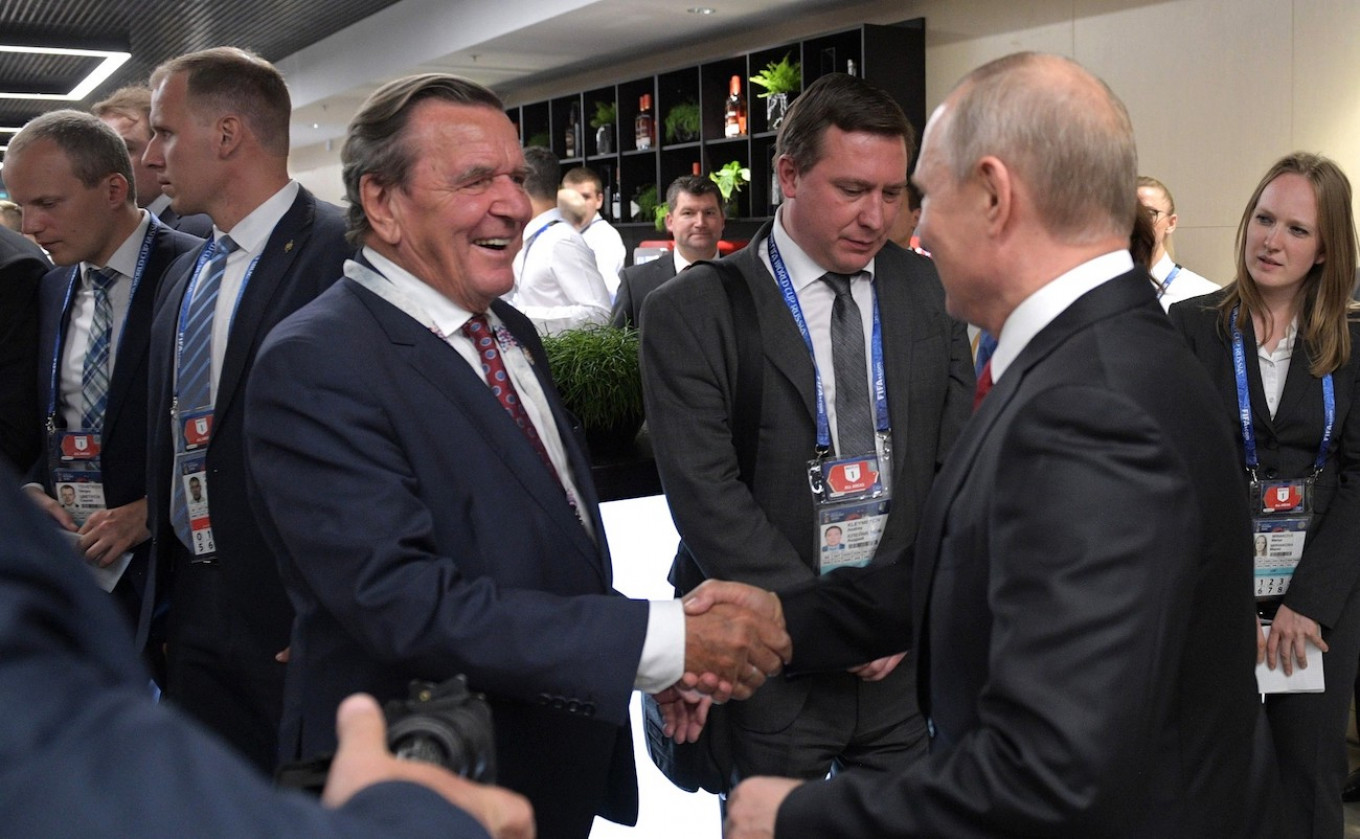
Former German Chancellor Gerhard Schroeder has said he will sue a German magazine for defamation over poisoned Kremlin critic Alexei Navalny’s comments that he is Russian President Vladimir Putin’s “errand boy” who receives “covert payments” from the Kremlin.
Putin’s close friend Schroeder, 76, last week cast doubt on the Kremlin’s role in Navalny’s near-fatal poisoning with the nerve agent Novichok in late August, calling the claims “speculation.”
Navalny, who is recovering in Berlin, accused Schroeder of “receiving shadow payments” and “protecting murderers” after leading “Europe’s most powerful country” in an interview with the Bild tabloid.
“He himself says that he has no evidence for his insinuations. However, Bild-Zeitung and bild.de have disseminated these statements without asking my opinion,” Schroeder wrote on his LinkedIn page Wednesday.
“I therefore feel compelled to take legal action against the publisher, which has seriously violated my right of publicity,” the ex-chancellor said, warning other outlets of similar actions.
Schroeder also called on the Russian government to “transparently” investigate Navalny’s poisoning on a flight in Siberia on Aug. 20. The 44-year-old opposition leader was medevaced to Germany after two days of treatment in Russia.
The global chemical weapons watchdog this week confirmed Germany’s findings, backed by French and Swedish laboratories, that Navalny’s samples contained traces of Novichok.
Shortly after stepping down as chancellor in 2005, Schroeder became chair of the shareholders’ committee at Russia’s Nord Stream 2 natural gas pipeline project, which faces U.S. sanctions as it nears completion. In 2017, he was also appointed chairman of the board at Russian state-controlled oil giant Rosneft.
In the Bild interview, Navalny urged the European Union to hit key Russian government figures and others who support Putin’s government with entry bans and other sanctions.
Schroeder’s successor Angela Merkel has said that Germany would consult with European partners on actions in retaliation to Navalny’s poisoning.
France, Britain and the Netherlands have come out in support of additional sanctions on the perpetrators of the attacks. Reuters reported that France and Germany would propose blacklisting officials from Russia’s GRU military intelligence agency at an EU meeting next Monday.
Russia denies that it was involved in Navalny’s poisoning.
